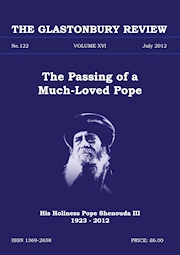THE PASSING OF A MUCH LOVED POPE
Although he had been in failing health for some time, the death of His Holiness Pope Shenouda III on 17 March 2012, came as a great shock and led to an extraordinary manifestation of public loss. He had been such a dominant and charismatic leader for four decades that he had come to embody the Coptic Church in his person and, indeed, had provided strong moral leadership for not only Copts but also for Christians throughout the Middle East. Many Muslims shared this respect and regarded him as a great Egyptian who had worked for harmony between all faiths. Al-Ahram hailed him as ‘The Pope of all Egyptians’ and declared, “We will miss his smile, his kindness and his true love of Egypt.” During his life he had been profoundly loved by his flock, which respected his learning, his wisdom and his ceaseless efforts on their behalf. In death they mourned the loss of a protector; but there was also a widespread feeling that his passage to the heavenly realm now gave them another intercessor who would not forsake them.
This great outpouring of grief was immediately recognised by Egypt’s military leadership, which granted three days’ holiday for the observance of the papal obsequies, whilst the many expressions of genuine condolence which poured in from past and present leaders, political and spiritual, showed the measure of respect in which he was held.
At a time of great political upheaval in Egypt, the Lord had spared the Pope to see the fall of President Mubarak and the first manifestations of popular democracy to be manifested in the aftermath of the Revolution. As always, he was guarded in his response to an uncertain future but spoke of peace, justice and sacrifice whilst urging all to trust in the unfailing providence and mercy of God. One of his last significant acts was the signing of the Al-Azhar Declaration in January, showing his lifetime commitment to a National Unity in which all citizens in partnership enjoyed equal opportunities, rights and duties and in which freedom of belief was upheld.

